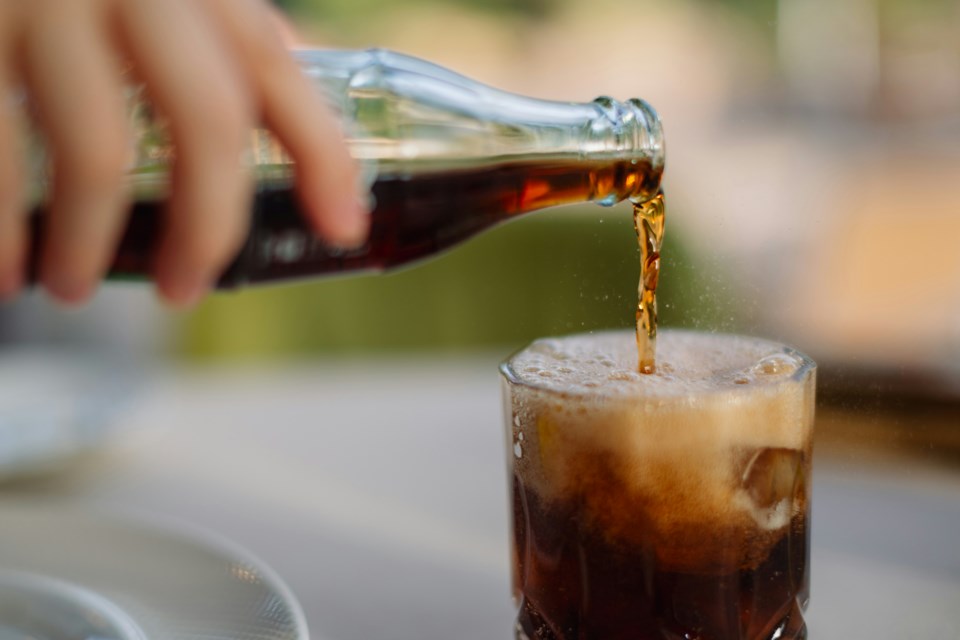I've never been a big fan of soft drinks as I don’t like those fizzy bubbles shooting up my nose. However, I do understand their widespread appeal. They're tasty, fun to drink, and many people are fiercely loyal to their favourites. Unfortunately, soft drinks are some of the most harmful substances we regularly consume.
A report I read claimed that the average American gets up to 90% of their daily calories from beverages — primarily soft drinks, juice, sports drinks, iced tea, energy drinks, and alcohol. This is alarming, especially when compared to the World Health Organization's recommendation that no more than 10% of our daily caloric intake come from added sugars.
Ideally, we should consume no more than six teaspoons of sugar per day. Yet a single 12-ounce can of soda contains about 10 teaspoons of sugar — already exceeding the daily limit. These drinks are also loaded with artificial colours, flavours, and additives like MSG (often disguised as “natural flavour”) — not to mention the dangerous caffeine content.
Regular consumption of sugary beverages has been linked to numerous health problems, including weight gain, obesity, Type 2 diabetes, tooth decay, digestive disorders such as IBS, hyperactivity, heart disease, liver and kidney issues, gout, acid reflux (GERD), and mood imbalances.
In fact, the National Institute of Health reports that sugary drinks were responsible for an estimated 184,000 deaths globally each year. As sugar weakens our immunity, a diet high in sugar also equates to greater potential to pick up and succumbing to whatever virus is going around, as well as a lifetime subjected to illnesses and weight gain.
A big part of the consumption problem is that these drinks can be addictive. Because many of their health effects develop slowly, people often fail to make the connection between their long-term health problems and a lifetime of consuming sugary drinks. Just one soda a day, often considered a harmless treat, can have lasting negative effects. If you suffer from any of the conditions mentioned above, consider the possibility that sugary drinks may be contributing to the issue—and think seriously about cutting them out of your diet. I previously wrote an article on .
Several decades ago, artificial sweeteners like aspartame and saccharin were introduced as a seemingly healthier alternative to sugar. For those concerned about all the sugar in their favourite soda, these ingredients felt like a miracle solution.
However, research into these sugar alternatives has raised red flags, with studies suggesting possible links between artificial sweeteners and serious health conditions such as Alzheimer’s, multiple sclerosis, cancer, depression, ADHD, migraines, dizziness, tooth enamel erosion, and even weight gain.
The debate is ongoing: while manufacturers deny any wrongdoing, many health experts argue that substances like aspartame should never have been approved by the FDA. Personally, I avoid these sweeteners due to their unpleasant metallic aftertaste. Here is a .
Teenagers are especially drawn to sugary drinks, with soft drinks topping the list, followed by iced tea, boxed fruit juices, sports drinks, energy drinks, chocolate milk, hot chocolate, sweetened specialty teas, and flavoured waters. Unfortunately, this high sugar intake may lead to fatigue at school, moodiness at home, and even symptoms of anxiety and depression due to sugar crashes. It’s never too late to educate young people on the dangers of these beverages. Reducing or eliminating them at home is a great step toward improving health.
If you're craving something fizzy, consider mixing a small amount of fruit juice (about ¼ cup) with plain soda water. Just remember — many juices are also high in sugar. Devices like the Soda Stream have become popular, but be cautious: their flavour syrups can also be packed with sugar or artificial sweeteners. Even sugar-free fizzy drinks can aggravate acid reflux and other digestive issues.
Ultimately, the healthiest beverage we can drink is simple, clean water. It’s the only liquid our bodies truly need. I wrote an article and its role in supporting our health.
I cannot emphasize enough how important it is to educate ourselves — and our families — about the risks of sugary and artificially sweetened drinks.
Claire Nielsen is a health coach, author, public speaker and founder of . The information provided in the above article is for educational purposes only and is not a substitute for professional health and medical advice. Please consult a doctor, health-care provider or mental health practitioner if you're seeking medical advice, diagnoses and/or treatment.





